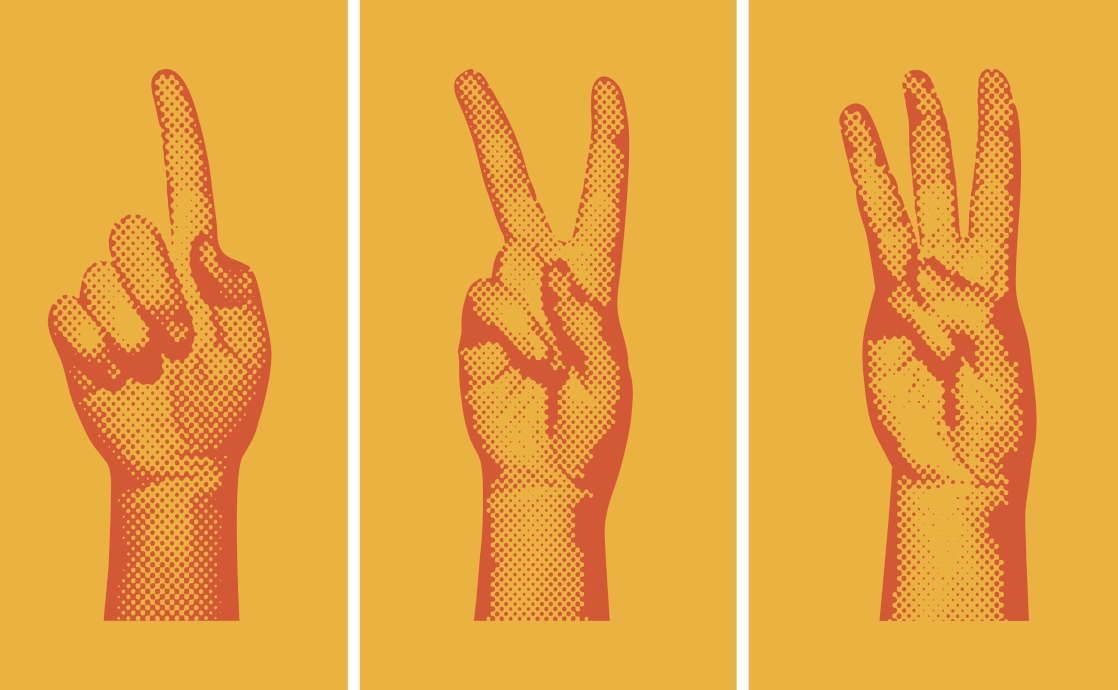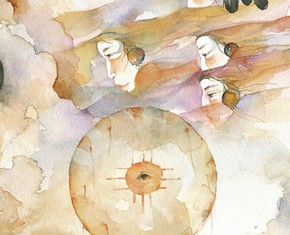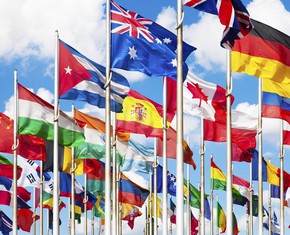The views expressed in our content reflect individual perspectives and do not represent the authoritative views of the Baha'i Faith.
I imagine, like most people at this moment in history, that we all struggle with how to engage in discourse about the world’s recent events. Do you?
Everyone knows that humanity has come to a frightening stage in our evolution as a species. We have weapons capable of completely destroying us. We have rising tensions and conflicts in many parts of the planet. We have despoiled our natural environment. We face the incredibly challenging issues of racism and prejudice. Taken all together, the world’s severe problems loom on all sides, threatening to overcome our ability to deal with them.
When it comes to solving these tremendous problems, the Baha’i teachings advise us to do two seemingly divergent things simultaneously:
Be anxiously concerned with the needs of the age ye live in, and center your deliberations on its exigencies and requirements. – Baha’u’llah, Gleanings from the Writings of Baha’u’llah, p. 213.
… Religion should not concern itself with political questions. Religion is concerned with things of the spirit, politics with things of the world. – Abdu’l-Baha, Paris Talks, p. 132.
So for Baha’is, what’s the balance between staying away from partisan politics and being “anxiously concerned with the needs of the age”? How can we do both of these things? What crosses the line between divisive, partisan discourse and reading our reality? What actions do Baha’is take to respond to the needs of the age; and what actions to they refrain from taking?
The Baha’i teachings offer an interesting mix of ample guidance and the latitude for the exercise of free will. With no clergy, the Baha’i Faith leaves it up to the individual conscience to seek an independent understanding of these principles and the balance between them. As I search for my own answers, I try to continually ask myself three central questions before I share something about the needs of our age, or engage with others about them:
1. Is it true?
Like most people I’ve found myself sharing something that ‘feels’ true, that sparks my sense of outrage, only to find out later that it was incomplete, partisan, or even social media clickbait. Fortunately, with the aid of search engines, it usually takes less than a minute to verify something—but this represents a constant, conscious battle everyone needs to fight. As a way to discipline myself, I try to wait a while before clicking the ‘Share’ button. That gives me time between the initial sense of outrage or indignation to think about whether this thing that seems obviously true is actually so. I try to maintain the same basic practice of discerning the truth in my conversations, too. This independent investigation of the truth is a basic Baha’i principle:
God has created in man the power of reason whereby man is enabled to investigate reality. God has not intended man to blindly imitate his fathers and ancestors. He has endowed him with mind or the faculty of reasoning by the exercise of which he is to investigate and discover the truth; and that which he finds real and true, he must accept. He must not be an imitator or blind follower of any soul. – Abdu’l-Baha, Foundations of World Unity, pp. 73-74.
2. Will it change minds or lovingly influence hearts?
In a previous BahaiTeachings.org essay I shared some of the things I learned from a short visit to the Standing Rock #nodapl prayer camps. I learned how carefully the elders there sought to inform people at camp about acting out of love rather than anger or hate. In one instance, as some young guys talked about the shocking police brutality they encountered on the bridge, a Standing Rock Lakota elder counseled them to be careful sharing such information because it might turn people’s hearts against the police. He reminded them that we’re all one family, and that they are struggling too. This profound lesson prompted me to consider: is this article or piece of news or opinion I want to share designed to inform about someone’s behavior or to engender anger, hostility, or bitterness? The Baha’i teachings ask us all to:
Do not despair! Work steadily. Sincerity and love will conquer hate. How many seemingly impossible events are coming to pass in these days! Set your faces steadily towards the Light of the World. Show love to all; “Love is the breath of the Holy Spirit in the heart of Man”. Take courage! – Abdu’l-Baha, Paris Talks, p. 30.
3. Will my words or actions actually serve others?
The Baha’i Faith, a religion of prayer-centered action, calls us to act in the service of humanity. So much of what we see in the media, particularly recently, can lead us to a feeling of outrage or righteous indignation, but is not always conducive to constructive action. While not all knowledge is actionable, and there is value in just knowing more about the world, formulating a clear path of action whenever possible can provide an opportunity to translate the Baha’i teachings into deeds in the real world:
We know that to help the poor and to be merciful is good and pleases God, but knowledge alone does not feed the starving man, nor can the poor be warmed by knowledge or words in the bitter winter; we must give the practical help of Loving-kindness. – Abdu’l-Baha, Abdu’l-Baha in London, p. 60.
Overall, I think it’s helpful to be gentle with ourselves, to approach these things from a posture of learning. We’ll make mistakes. We’ll say things we wish we hadn’t. We’ll do things that don’t work. Then, if we remain conscious of our inner spiritual condition and keep asking ourselves these three questions, we can correct those mistakes and move forward on the path. Ultimately, the Baha’i teachings tell us, if we engage with everyone from a place of love, we’ll see justice and unity eventually spread throughout the world.
You May Also Like
Comments

















I believe a key missing factor in the Baha'i Communities has been most individual's lack of acceptance of a unique personal mission in contributing to an ever advancing civilization. While on this Earth our bond with Baha'u'llah is conditioned on ...this contribution, especially in reference in contributing to the efficacy of His Administrative Order. Oh, to be a practical mystic in the World Order of Baha'u'llah!